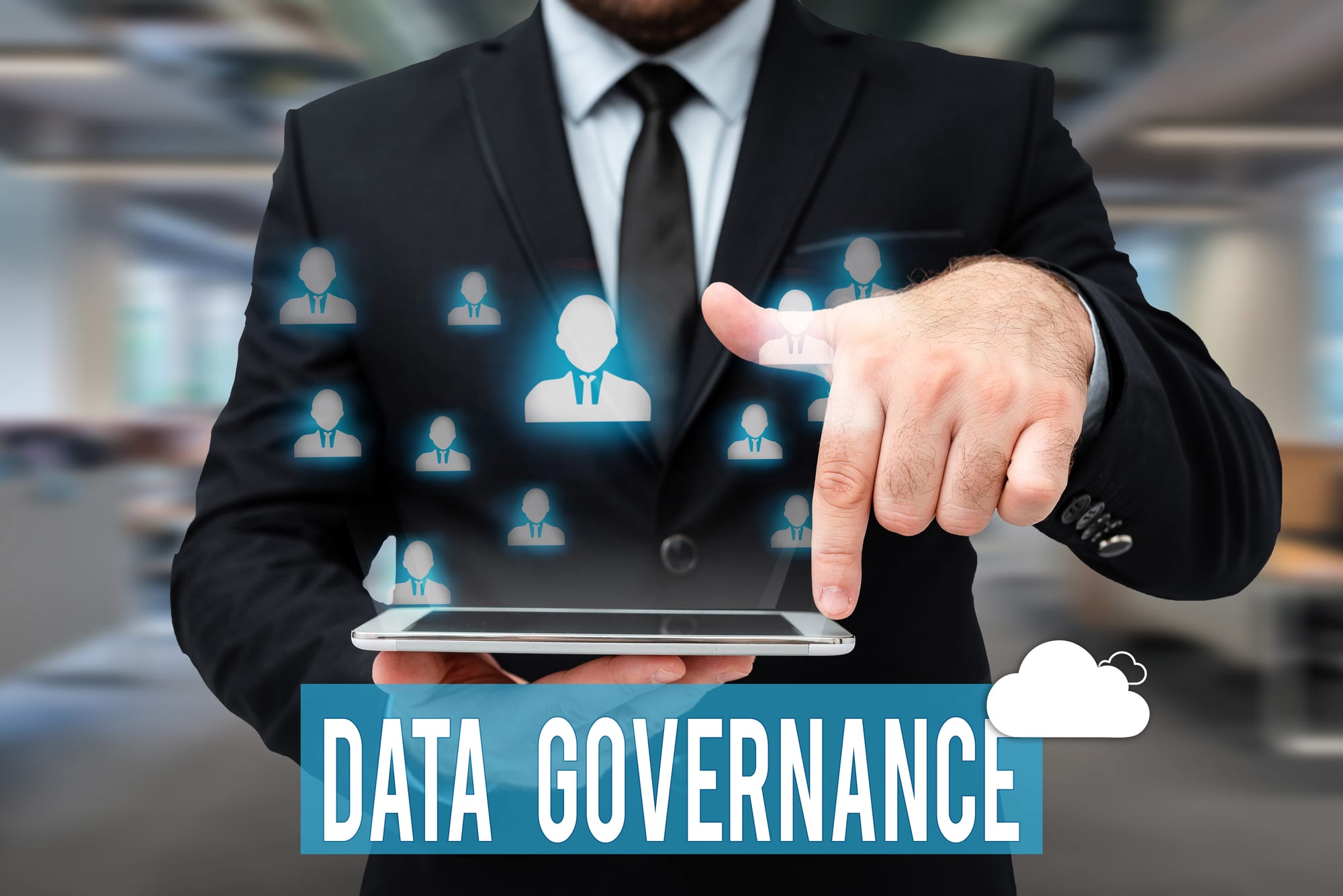
Cloud computing, SaaS and the new normal for manufacturers
Over the last two to three decades, cloud computing and software-as-a-service (SaaS) have been increasingly gaining momentum in their adoption. More and more IT departments, CIOs, CFOs, CEOs and many other disciplines are now realizing the extraordinary business benefits of Cloud/SaaS over their traditional in-house client-server IT architectures.
Justifiably therefore, more and more manufacturers are actively switching their legacy quality management systems to more advanced cloud-based quality platforms, and for good reason. Simply put, in today’s ever-changing and volatile manufacturing climate, the cost advantages, power, and versatility of the cloud have become essential to survival. Coupling this with the advancement and maturation of core technologies, most organizations are now adopting a 'cloud-first' stance when selecting the latest and best in-class technology capabilities.

Have consumer privacy concerns trumped innovation?
The Internet of Things (IoT) grows larger by the day, with the number of connected devices feeding into it climbing exponentially. Currently sat at around 14 billion, the number of active connections is expected to almost double to 27 billion by 2025.
While remarkable, we must also acknowledge that increasing connectedness has fueled consumer concerns over the way their data is collected and used.

What are the most successful areas of tech in 2022?
Technology has evolved quickly in the past few decades and its growth has shown no signs of slowing down anytime soon.
Some trends come and go, but others stay as a way to solve catastrophic issues. These five areas of tech have been the most successful in 2022 and will be a mainstay for decades to come.

These are the three biggest goals for an IT organization
One of the biggest misconceptions about IT is that we are only called when something is broken and needs to be fixed.
But IT’s unique knowledge and skills place us in a central role for the organization. And we should use that position of influence to unlock potential and achieve three main goals: enablement, protection, and innovation.

7 reasons to start using deception technology
Hacker attacks are often based on social engineering. Attackers send phishing emails, create fake websites and apps. Their goal is to force the victim to click a malicious link, open a virus file, or provide sensitive data. Simply put, cybercriminals try to deceive their victims. Deception technology adopts the same principle. It is intended to deceive the hackers. And it does it very successfully. Gartner analysts placed the deception approach on their radar of the most promising security technologies. Deception technology is easy to deploy, and it is effective in detecting and avoiding various threats aimed at organizations of all sizes. If you doubt whether your company needs to employ deception technology, here are seven reasons to try this defense practice.
0-day vulnerability protection

Process orchestration: The unsung automation hero
When you think about process automation, you might naturally think of a company like Amazon. From ordering, to warehouse automation, to delivery, to returns -- end-to-end business processes flow seamlessly, like magic. When you’re building from scratch as a startup, this level of process automation is easier to achieve than if you’re contending with legacy systems.
But today, 70 percent of global companies list legacy modernization as a top strategic business priority. That means automating all of their processes from scratch isn’t always an option. Ripping and replacing legacy systems is disruptive and costly. That’s where process orchestration comes in.

Making sure 5G networks are a friend, not a foe, to organizations
Over the last five years, 5G has been one of the biggest buzzwords in the technology industry, with the largest telecommunication providers and the latest devices offering the service. Whilst it does offer lightning-fast internet speeds, real-time connectivity, and many more benefits, there is a catch.
5G creates businesses both opportunities and dangers, with cyber criminals using the technology to aid their attacks and breach networks. Therefore, organizations must understand the cyber threats that are present within their 5G networks and how they can be stopped.

Why accessibility is good business but rarely a priority
According to the World Health Organization, one billion people -- approximately 15 percent of the world’s population -- live with some form of disability. There are more than 350 million people suffering from color blindness alone, and discretionary disposable income of people with disabilities is estimated to be half a trillion dollars in the U.S. The potential revenue that businesses can gain from better serving people with disabilities is immense.
But despite those staggering numbers, accessibility is often ignored in the design and development of digital products. When not completely ignored, it is commonly planned and budgeted for to be done at a later time, often due to a product management paradox.

Why solving the identity management crisis facilitates the adoption of digital transformation
Identity data is frequently stored by organizations using a variety of sources, formats, and protocols, sometimes making it impossible to access essential identity information needed for security and business decisions. Without precise identity data, systems cannot decide what users should and should not be able to access which resources. Even worse, to make life easier for the admins, sometimes the default is overextending access and over-privileging accounts. This raises the possibility of a successful breach, as well as the possibility that it will go unnoticed for a longer period of time.
The number of identities linked to companies has also been increasing exponentially -- a recent study by Gartner Peer Insights found that 60 percent of organizations have more than 21 identities per user.

Critical infrastructure cyberattacks: What are the implications of their increasing prevalence?
Over the past couple of years, there have been a growing number of cyber attacks on critical infrastructure around the world. Most recently, Estonia was subjected to its most extensive cyberattack since 2007, apparently in retaliation to the country removing Soviet-era monuments from public places. Earlier this year, Costa Rica had to declare a state of emergency after a Russian-speaking ransomware gang threatened to overthrow the government in the wake of two cyberattacks. In July last year, South Africa’s ports were almost totally shut down after a ransomware attack.
While these attacks are of varying severity -- Estonia experienced minimal disruptions to critical websites while Costa Rican health officials were unable to access critical healthcare records and tax systems were frozen for weeks -- they show that cybercrime is no longer just about obtaining data. Instead, cybercrime is being used against real-world infrastructure and with very real consequences.

Data storage protection: What problems can you face and how to solve them with data governance tools
Almost any information not located inside the DBMS is classified as unstructured data. Today, unstructured data is one of the main information assets of any company. It includes electronic documents and files located in corporate storage units, namely office documents, PDF files, scanned copies, and audio and video content.
The problem of protecting unstructured data storage units is acute in many companies. Before proceeding to the protection methods, it is necessary to determine why the task of protecting such systems is vital.

How DNS security can kick-start the process of managing shadow IT
Shadow IT, or the use of IT systems, software, devices, applications, as well as services without the approval of the IT department, is one of the serious reasons why companies face grave security hazards.
But before it is too late, many organizations may not be aware that shadow IT is creating a gap in their structure. The security teams now have a dilemma since they may not have the tools to keep track of a shadow IT issue that affects the entire organization. So, what exactly are the security issues and how can organizations solve them?

Ransomware: Recovering after an attack
Ransomware attacks have existed for decades and their perpetrators keep advancing in their abilities. By evading detection, encrypting user files, and coercing unsuspecting victims into paying ransoms, ransomware attackers have threatened the survival of many businesses. The first half of 2022 recorded a total of 236.1 million ransomware attacks across the globe.
The most popular types of ransomware attacks are crypto and locker ransomware. The crypto ransomware encrypts a user's data making it inaccessible until the individual pays the ransom, usually in bitcoin. On the other hand, locker ransomware works by blocking the user's access to the computer system and will not give access until an amount is paid. Despite the security measures businesses put in place, ransomware threats are still on the increase which is why businesses must have a ransomware recovery plan to minimize catastrophic effects.

Different ways of building corporate systems based on the zero trust architecture
The corporate infrastructure of US government agencies will soon be transferred to a new network security model called Zero Trust Architecture (ZTA). Last year, U.S. President Joe Biden released an Executive Order on Improving the Nation's Cybersecurity. Later, on January 26, 2022, the Federal Government released a Federal Zero Trust Architecture (ZTA) strategy memorandum that sets the rules for the construction of a new IT infrastructure for government agencies and organizations in accordance with the ZTA strategy.
In this article, I want to look at the fundamental changes that the new paradigm brings, replacing the secure perimeter model, which has so far been the base for the construction of corporate IT systems.

How cloud computing turned security on its head
When an organization migrates its IT systems to the cloud -- and builds new applications in the cloud -- it relieves its security team of the responsibility of building and maintaining physical IT infrastructure. The shared security model of cloud dictates that cloud service providers (CSPs) such as Amazon Web Services (AWS), Google Cloud, and Microsoft Azure are responsible for the security of the physical infrastructure. Their customers are responsible for the secure use of cloud resources.
But embracing the cloud for building and managing new applications means security teams cannot deploy the traditional security technologies and processes they’ve long relied on to thwart cyberattacks. Cloud computing represents a paradigm shift in their roles and responsibilities and their approach to protecting sensitive data against falling into the wrong hands.

